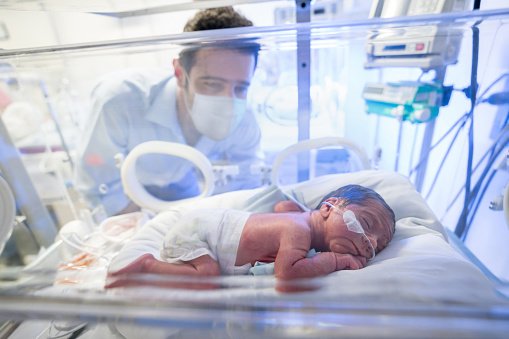An incubator is equipment that has a controlled environment. It is an enclosed and insulated component with controlled and optimal environmental conditions to favor the organisms’ growth. In most cases, the device is found in laboratories and hospitals. It is made up of several components. These components include the cabinet, Door, Control panel, and thermostat, which controls the temperature. This article will examine various applications and uses of the incubator.
1. Premature Birth issues
The incubator device is used for babies who are prematurely born. Babies born prematurely need more time to develop some vital organs that may not have been developed at birth. Such babies are kept in the incubator as their organs develop. This device has a controlled environment, which promotes the growth of organs that may not have developed.
2. Babies with breathing issues
The lungs are one of the crucial organs in the body that takes more time to develop. In premature birth, the lungs may not fully develop, limiting the baby from breathing normally. Thankfully, an incubator can aid the breathing of newborns. On some occasions, babies may have Meconium fluid in their lungs, leading to the inability to breathe. In such cases, incubators can be used to monitor the breathing of the baby. Therefore, using an incubator on such occasions can reduce the effects of lung infections.

3. In Microbiology laboratories
In Microbiology laboratories, there’s production of bacteria, fungi, and microbes used for the study. Different organisms are produced in other environmental conditions. Thankfully, all types of microorganisms can be produced using a single incubator due to its controlled environment.
4. In Zoology Laboratories
The use of incubators has improved the zoology sector. It provides a controlled environment for hatching eggs of oviparous organisms. Today, artificial methods are one of the easiest ways of hatching eggs. The use of an incubator is one of these artificial methods. The eggs are stored in the incubator with controlled temperatures in this mode. This shortens the hatching duration.
5. Storing of specimen
Incubators provide an optimal environment for storing samples. An incubator is a storage device for models and other biological tests in biological laboratories and laboratories. It gives a cool and optimum environment for the survivor of these specimens. In sperm banks, the incubator is a common device. It is the home of donated sperm. On the other hand, the incubator is used in the hospital to store medical specimens.
6. Traumatic delivery
During delivery, some defects may occur and affect the baby’s health. The typical defect that affects many babies is delivery trauma. In a case where the newborn experience trauma, regular and constant observation are required. To achieve this, the baby is kept in an incubator with controlled conditions supporting the baby’s life.
7. To grow cells or Microbes
While studying and researching the cells and microbes, the incubator plays a vital role. It supports the life and growth of these cells and microbes. Cells and microbes survive at different temperatures and conditions. With an incubator, this is possible.




